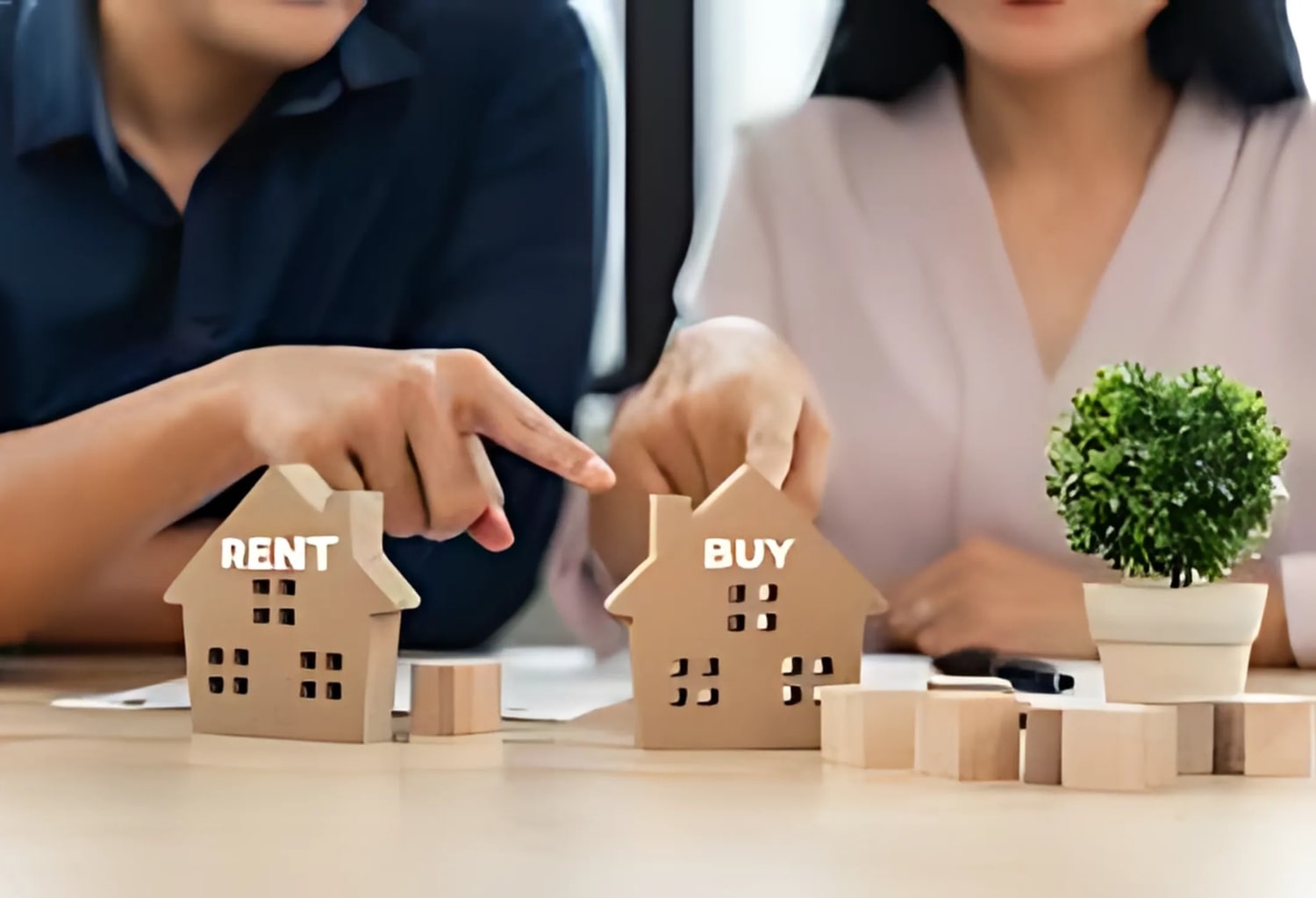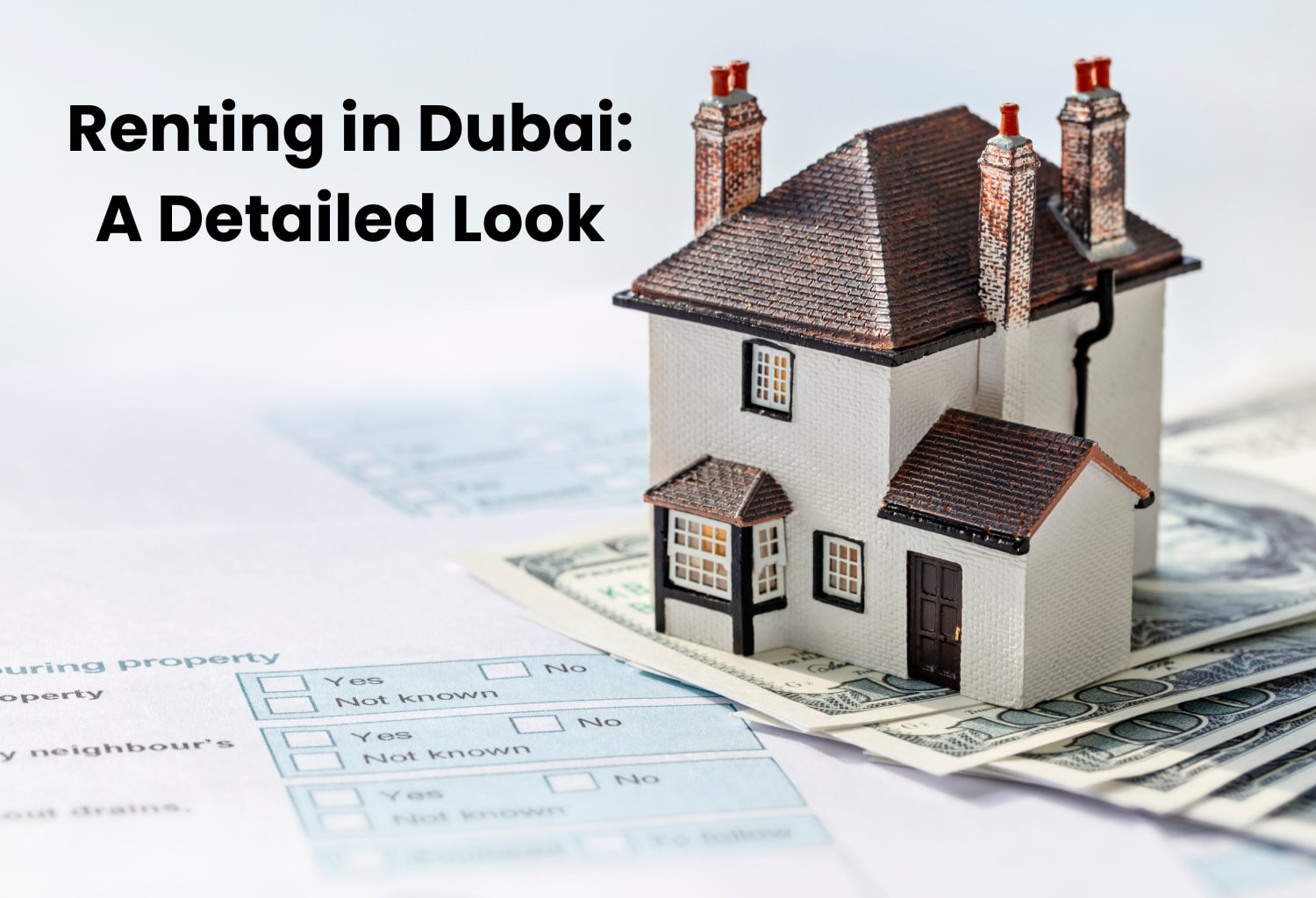Buying vs Renting in Dubai: Which is the Smarter Choice in 2025?
- Home
- Blog

Dubai’s competitive real estate market provides a unique set of problems and opportunities for both expats. While the temptation of buying a home in this lively city is clear, renting provides substantial benefits for individuals looking for flexibility and cheaper initial costs. This in-depth research delves into the complexities of each option, providing a more nuanced view on decision-making in 2025.
Renting in Dubai: A Detailed Look

Rent increases in Dubai are likely to reduce this year due to the Dubai Land Department’s (DLD) new smart rental index, as well as an increase in property handovers scheduled for 2025, making this year an excellent opportunity for individuals wishing to join Dubai’s hectic lifestyle. Perfect for expatriates with short-term contracts or frequent relocations within or outside Dubai. Enjoy the freedom to explore other areas and lifestyles without long-term obligations.
Renting in Dubai: The Pros and Cons
More affordable
When you decide to rent a home in Dubai, you will discover that it may be less expensive than purchasing a property due to lower rental costs, DLD fees, registration fees, and other additional charges. You also don’t have to worry about the cost of upkeep and repairs.
Transient commitment
If you intend to stay in Dubai for a short time, renting a property may be an excellent option. A yearly contract with a landlord allows you to avoid the dangers connected with long-term investments, such as market swings.
Flexibility and Mobility
Because Dubai has a thriving employment market, you may need to shift your home or workplace due to a job opportunity in another emirate. Renting a home allows you to easily cancel your renter contract and leave your current residence, and you will be free to relocate to a different region or a larger space if necessary.
Reduce initial costs
Renting a house in Dubai often has cheaper upfront fees than owning one. Buying a house entails additional fees and ongoing maintenance costs, whereas renting often only requires a security premium and monthly rent payments.
Access to amenities
Rental houses in Dubai are typically part of bigger residential communities that offer tenants a variety of amenities such as swimming pools, gyms, and parks. Such facilities and amenities add convenience to the entire living experience. However, tenants are not directly involved in upkeep and repairs.
The negative aspects of renting a property in Dubai
Restrictions for customization
The primary drawback of renting a house in Dubai is the inability to modify the property because it is not your own. Most landlords will not agree to spend money on adding new features or making the particular alterations you seek. Making structural improvements to the property, such as adding a room or a pool, is also strictly prohibited.
Regular increases in rental rates
As rental costs in Dubai continue to rise year after year, rental properties are not suited for long-term living. Rental rates in Dubai may climb by more than 20% per year, resulting in a higher amount each year.
Pricey in the long run
According to a widely held belief in Dubai’s real estate market, paying rent is equivalent to investing money with no long-term return. As you spend your money on renting a house, you will quickly find that there will be no financial yield with your payment.
Buying in Dubai: A Detailed Look

There are numerous factors to consider when buying a new house. If you’re buying a home in a new place or for the first time, the process may seem intimidating. You need a starting point, and as you progress through the purchase process in Dubai, the overall picture will become clearer.
First, you must decide what you are looking for. As straightforward as it appears, this particular phase demands making some decisions that may seem obvious yet call for awareness of some issues. Freedom from lease agreements and potential rent increases. closing costs (including registration) are required.
Buying in Dubai: The Pros and Cons
Passport acquisition
Whether you need a backup plan or simply enjoy collecting passports and visas, purchasing a home in Dubai can enable you to secure a visa.
Favorable Tax Situation
How much of your income do you now pay to the government? Depending on where you live, with the proper tax setup, you can legally reduce your personal income tax to 0%. There is no capital gains or property tax either. Corporate tax has been set at 9% of profit (beginning with AED 375,000) or other suitable conditions. Globally, that’s still a rather low tax rate.
Freestanding ownership
Many freehold locations provide you full ownership of a property, regardless of where you are from.
Financial stability
Many will cite 2008, when Dubai melted amid the economic crisis, far worse than other emerging countries. While many argue that people do not learn from history and that the resulting economic instability will reshape Dubai, we disagree.
They are often less flexible and shorter in duration, but they nonetheless enable a set of purchasers .
Gold networking possibilities
After a year in Dubai, you will have formed vital friendships with people who share your interests. The most successful businesses in every industry, the most popular influencers, and the most talented professionals either live here or visit on vacation.
Cons of of buying in Dubai
In general, buying ready properties incurs greater costs than off-plan purchases, and these costs may vary depending on the agreement, but buying property is still less expensive than in most other nations.
Mortgages are expensive, even if you receive one.
Interest rates in Dubai are frequently higher than in other nations, making it difficult for a newcomer with no job history in the UAE to secure a mortgage. In addition to the mortgage value, there is often a 1% arrangement fee + 5% VAT.
Painful purchasing process
Purchasing a ready property can be a hassle. Sellers will often only allow you in for a showing if you bring a check (as proof that you are serious). They will use you to test the market, forcing you to commit even though you had no intention of selling. Agents will not attend visits, sacrificing half your day for nothing. Even if a property exists, many people are forced to buy based on movies received over WhatsApp, only after learning that the exterior surfaces are full of mold, which was not apparent in the video material.
No nationality
Frankly, it is unlikely that you will ever become a UAE citizen. A few foreigners were naturalized, like Pavel Durov (creator of Telegram) and Gérard Depardieu (French actor), although these are the rarities.
High expense of life
Yes, with the proper setup, you can live here legally tax-free, but you’ll probably have to spend it all again to maintain a certain level of living. This is not suggesting that you can’t live pretty cheaply here, but activities like going out or having children, simply put, are expensive.
No democracy
There is no voting mechanism, and you have no say in what path the UAE should take. While most people will see this as a disadvantage, some believe it is advantageous because political decisions can be implemented very immediately (rather than waiting for approval through many instances). Average, selfish Joe is not allowed to poison politics with his rubbish.
Who Should Buy in 2025?
Investment and wealth building: Property values in Dubai have historically appreciated, permitting homeowners to build equity over time.
Investment and wealth building: Property values in Dubai have historically appreciated, permitting homeowners to build equity over time.
Long-Term Investment possibility: Offers a steady and possibly lucrative long-term investment option with the possibility for capital appreciation and rental income. Homeowners have complete control over their living space through renovations, modifications, and décor choices.
Market fluctuations: Property values can change dramatically, reducing investment returns and posing financial hazards.
Liquidity: Real estate is less liquid than equities or bonds due to the time-consuming and complex selling process.
Compliance with legal and regulatory frameworks is crucial for property ownership in Dubai. Professional legal aid may be necessary.
Who Should Rent in 2025?
Financial Considerations: Lower Upfront Costs: Only a security deposit (5-10% of annual rent) and the first month’s rent are required, significantly reducing the initial financial burden compared to purchasing.
Predictable Monthly Expenses: Fixed monthly rent payments lets for stronger budgeting and financial planning, especially for expats adjusting to the local cost of living.
Reduced Maintenance Requirements: High-rise rental properties sometimes provide amenities such as pools, gyms, and landscaped gardens, improving quality of life without individual ownership.
Considerations:
Annual rent hikes affect budget and long-term financial planning. Tenants have little influence over property improvements, including limits on pet ownership and alterations. Eviction may occur if lease agreements are not followed, resulting in disruption and the need for alternative accommodations.
Conclusion: It’s All About Your Goals
Today, Dubai’s economy is even more diverse. In fact, Dubai has drained its oil reserves. Instead, it developed robust hotel, technology, and commercial industries that should provide some relief in a crisis. The UAE’s currency, the dirham, is tied to the world’s strongest currency, the US dollar (at a rate of AED 3.67 = USD 1). All of this makes Dubai’s current economy resilient.
About Us
REYES & ELSAMAD believes that ethics, integrity and steadfast fundamental beliefs are the foundation of any profitable venture. Our objective is to improve the UAE Real Estate market as best real estate company in dubai by incorporating these ideas into our work.
